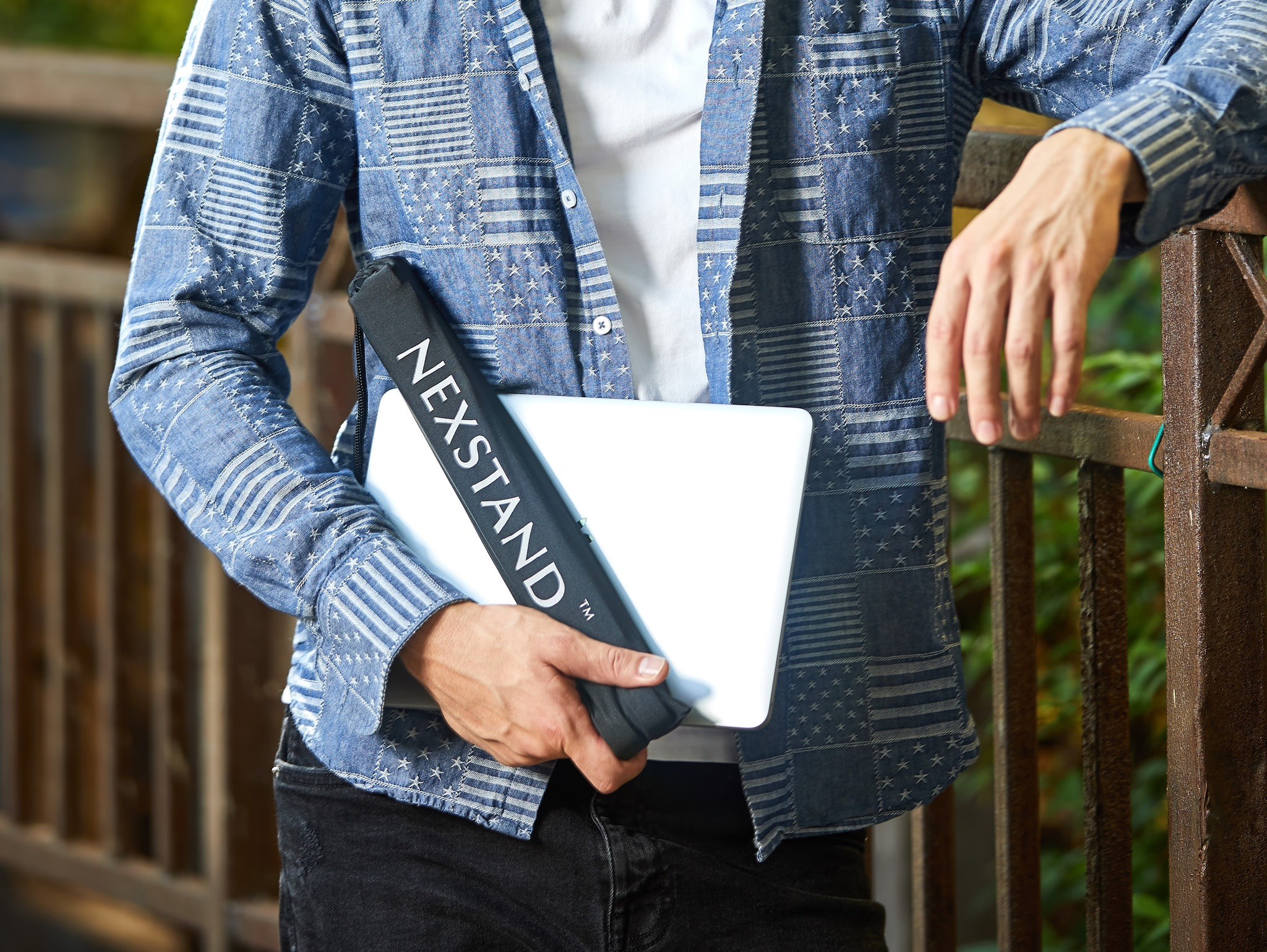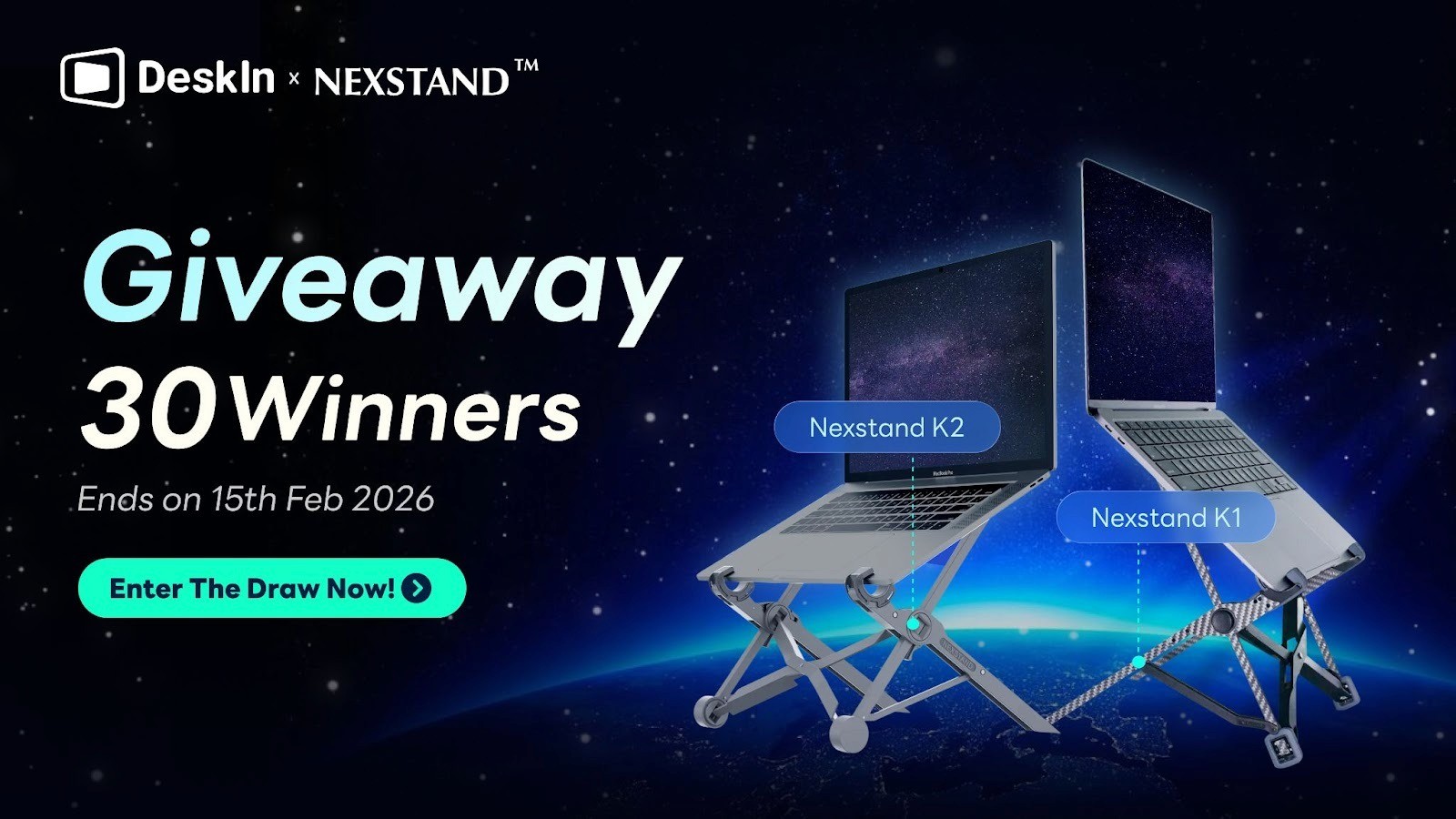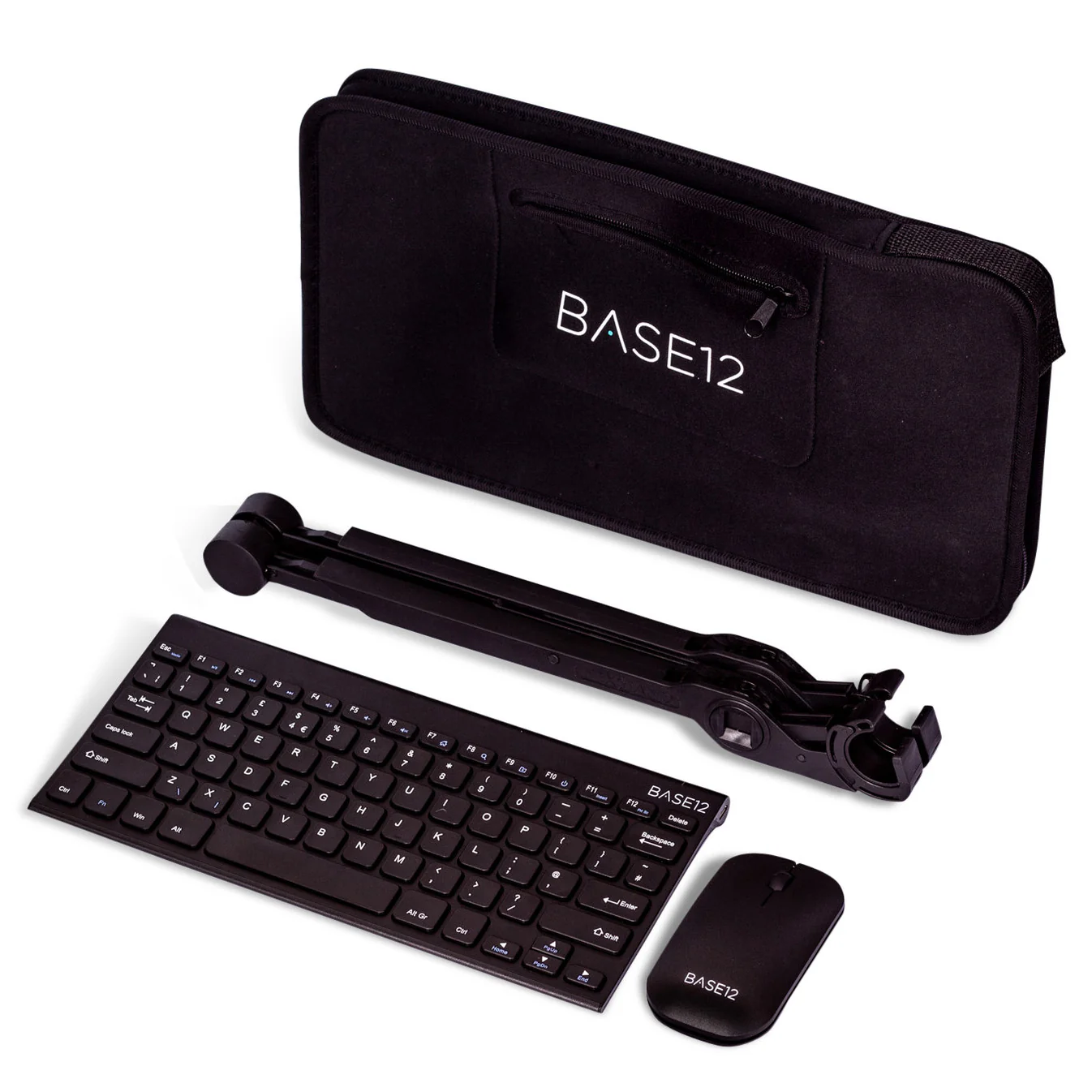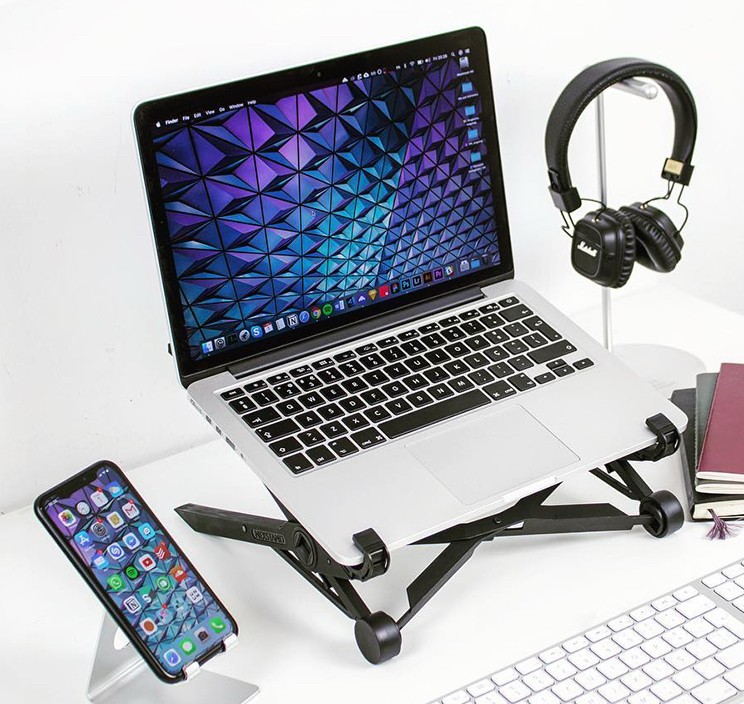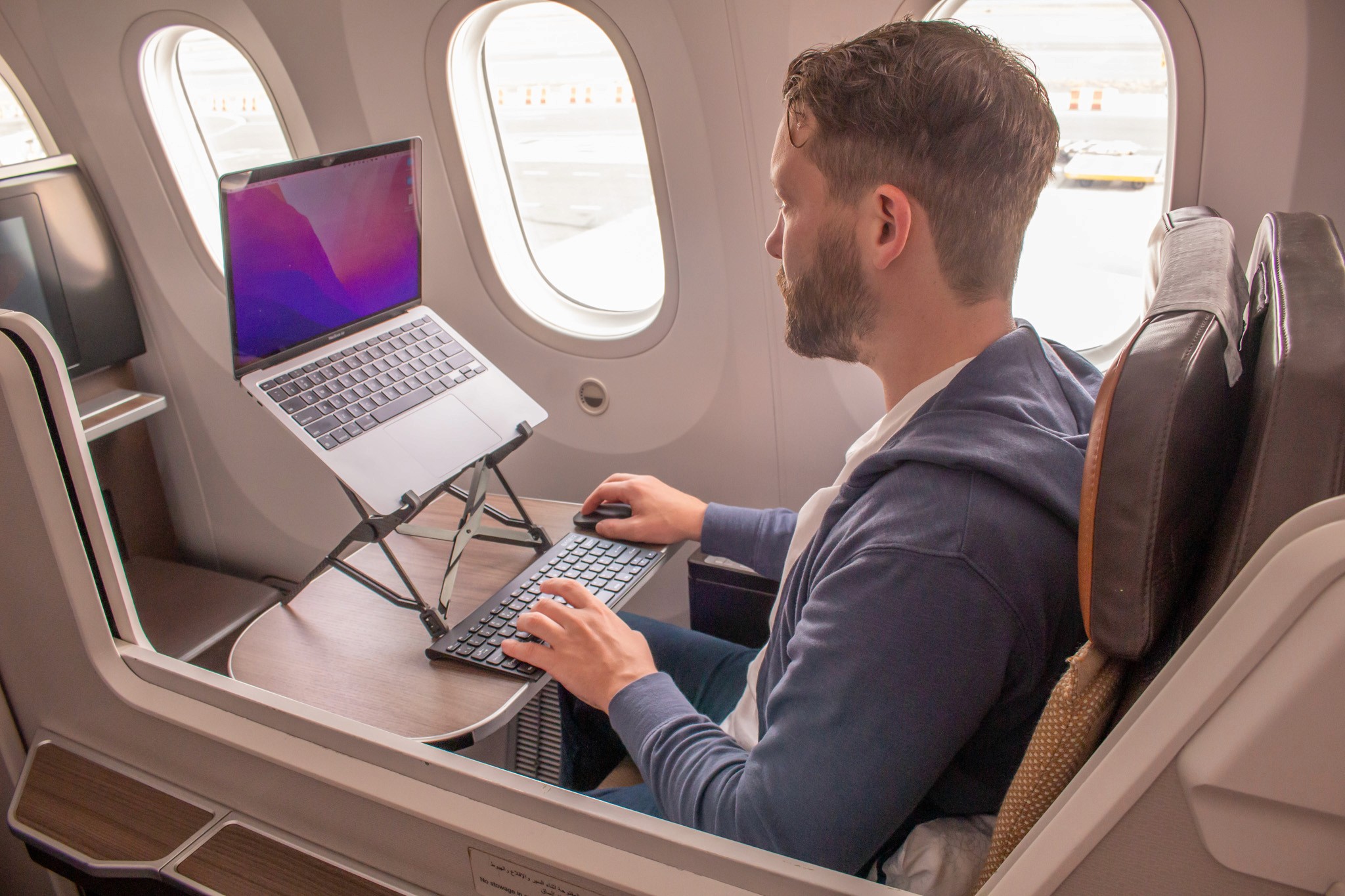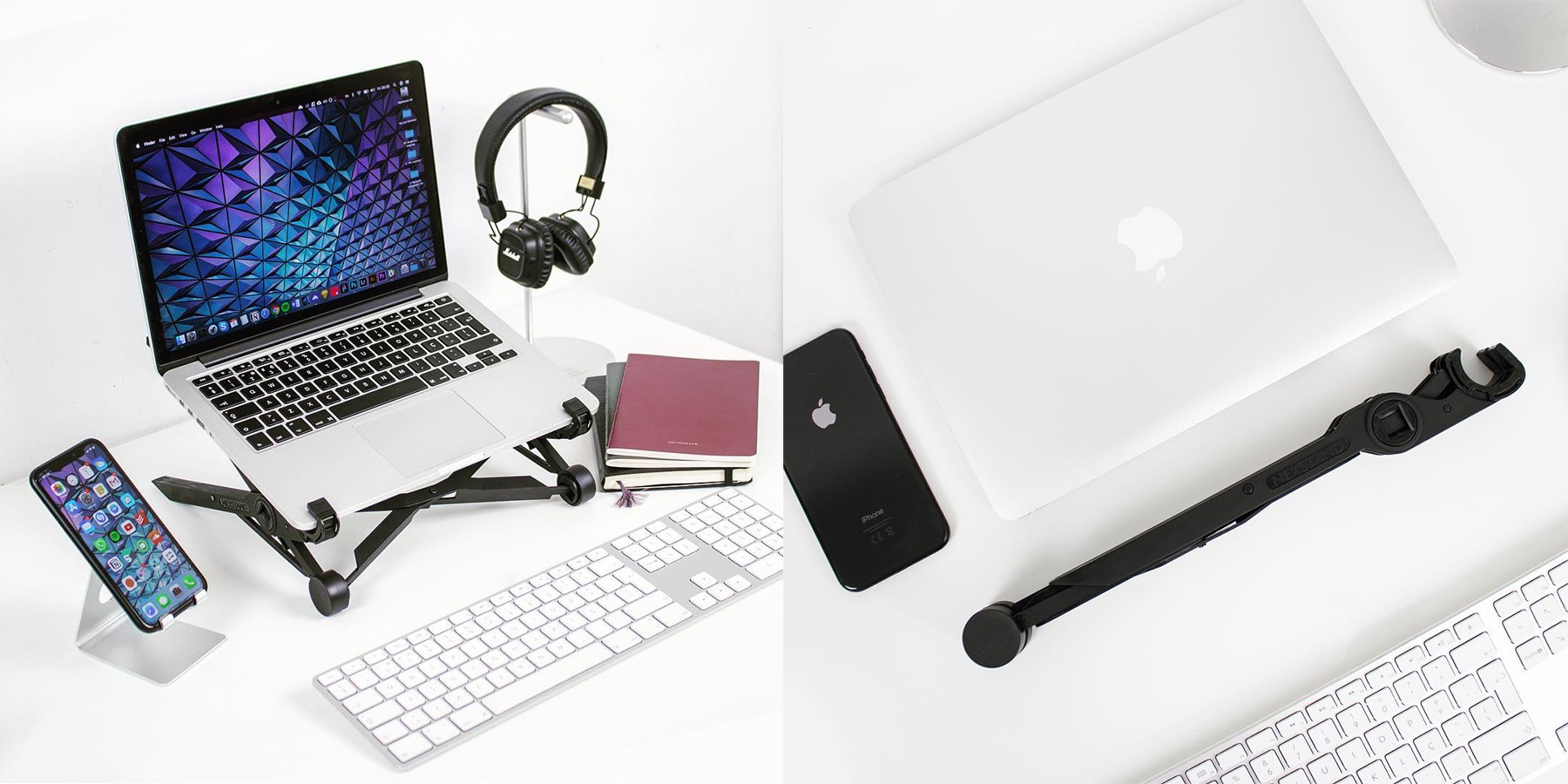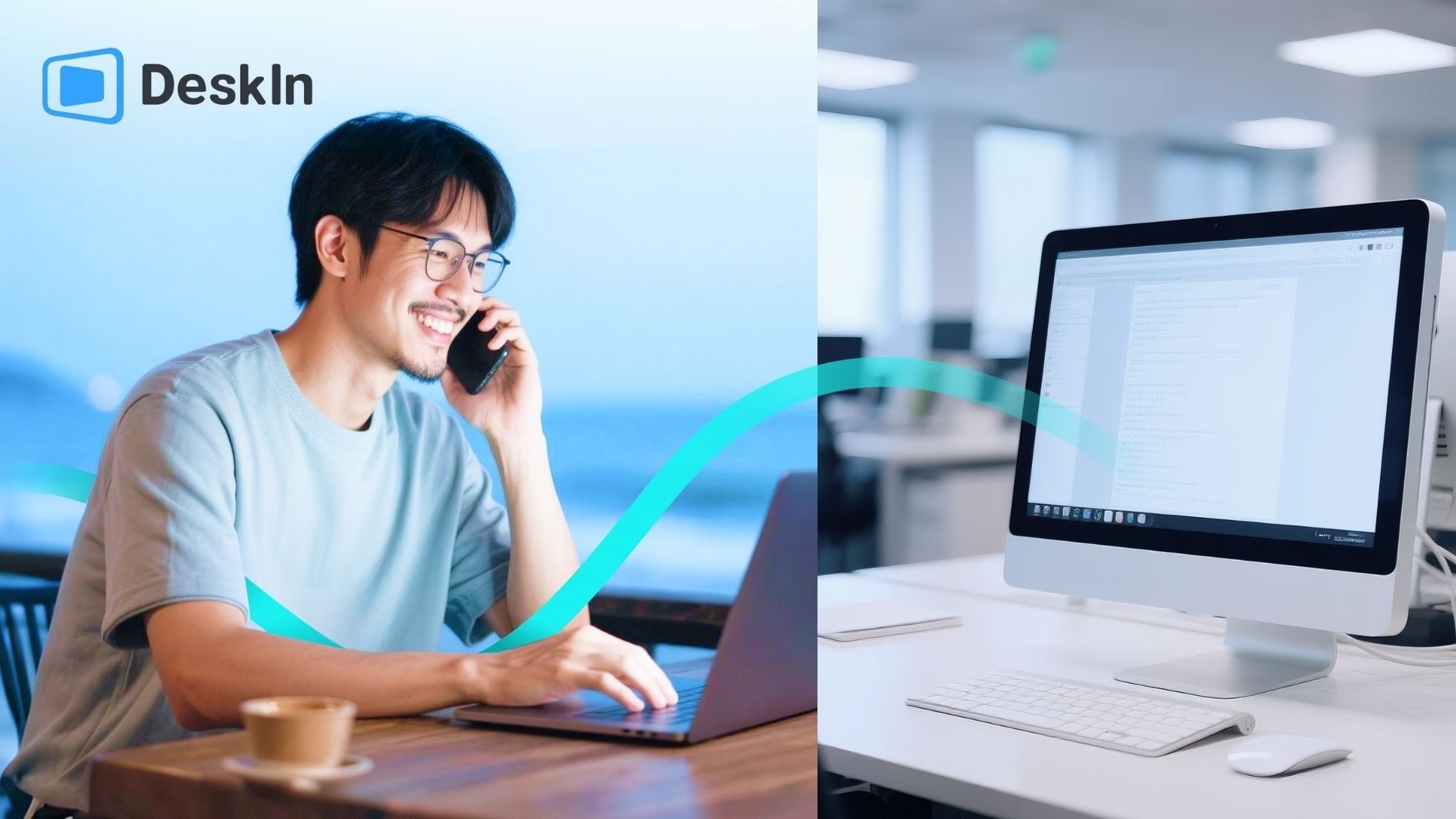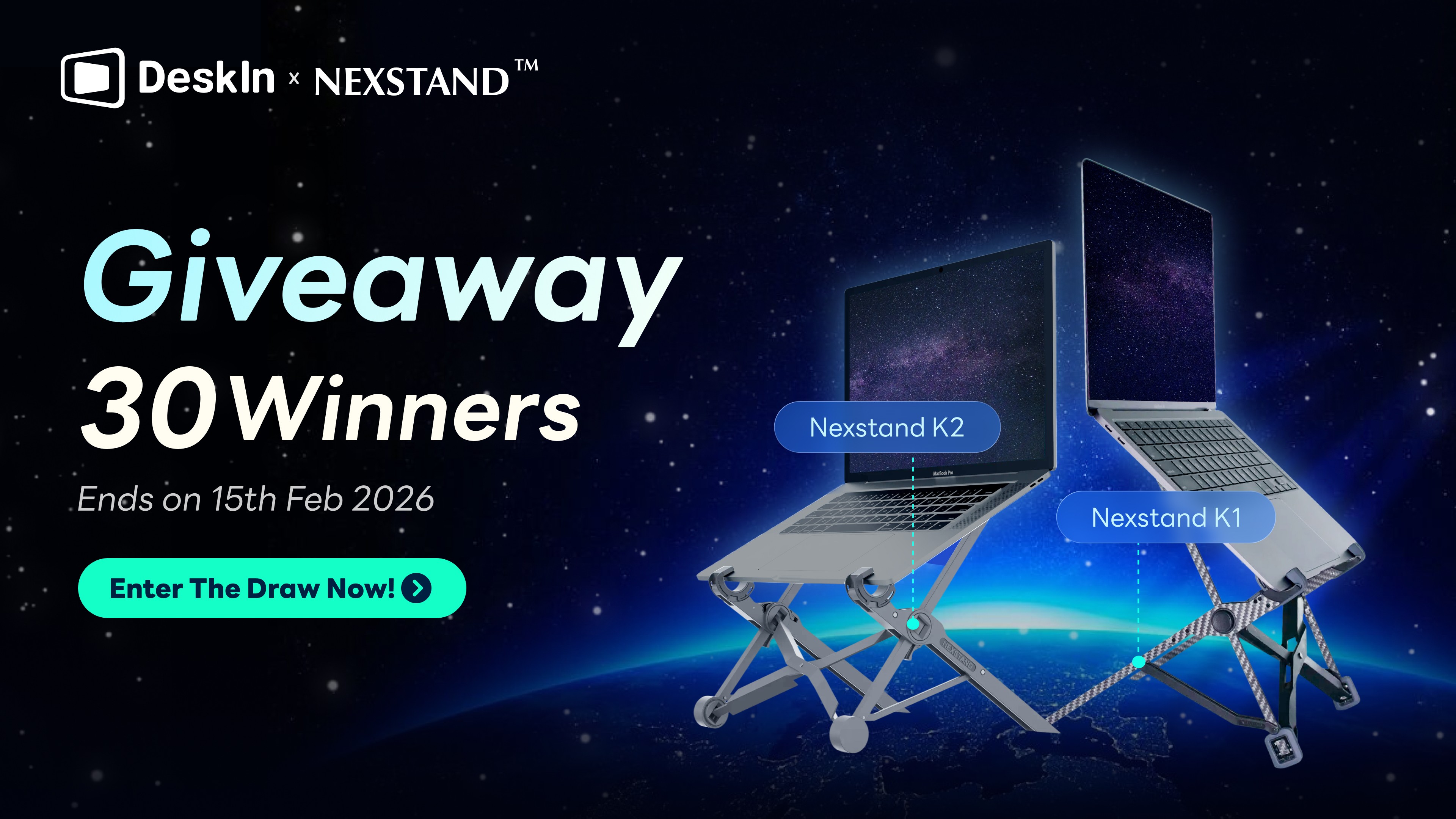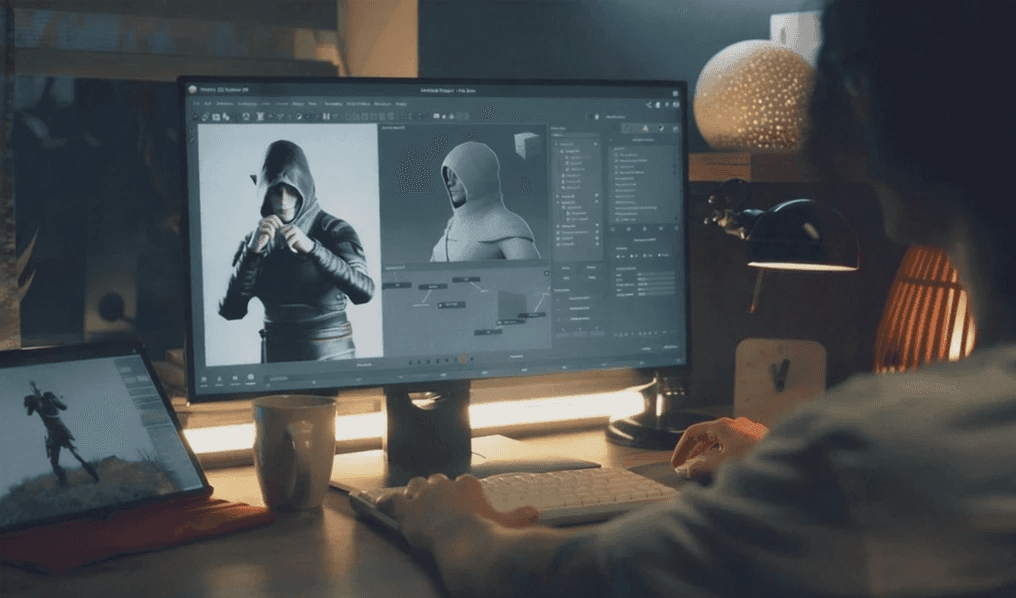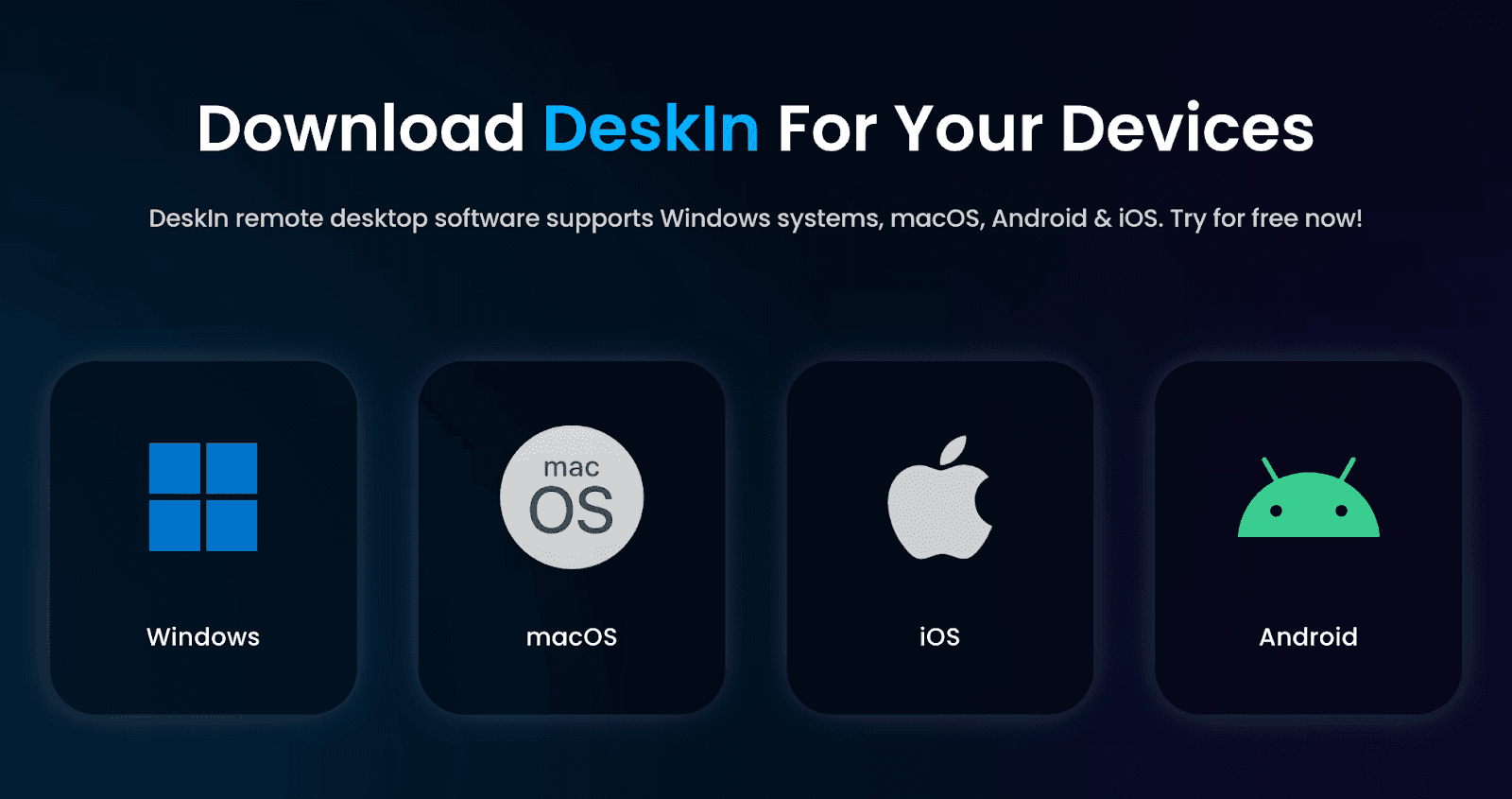5 Ứng Dụng Phản Chiếu Màn Hình Miễn Phí Tốt Nhất Cho iPhone/Android/PC/TV
Khi các chương trình chia sẻ màn hình miễn phí như AirDroid Cast hoặc LetsView giúp tiết kiệm chi phí, nhưng các hạn chế của chúng lại gây khó khăn trong thực tế - việc phản chiếu chỉ đến tối đa 2 thiết bị buộc phải thực hiện những cách làm không thuận tiện trong các buổi trình bày nhóm, quảng cáo khó chịu xuất hiện giữa buổi thuyết trình, và các lỗ hổng bảo mật có nguy cơ làm lộ dữ liệu nhạy cảm của khách hàng.
Ngay cả những ứng dụng phát sóng miễn phí phổ biến cũng gặp khó khăn với sự không tương thích của nền tảng (ví dụ: sự cố Android-to-Mac), buộc người dùng phải vật lộn với nhiều công cụ khác nhau. Đối với các chuyên gia, những giao dịch "miễn phí" này có nghĩa là các bản vẽ CAD bị mờ trong quá trình xem xét, màn hình Zoom bị treo, hoặc phải khởi động lại các buổi đào tạo quan trọng khi kết nối bị ngắt.
Sau khi thử nghiệm hàng chục công cụ phản chiếu màn hình, chúng tôi đã tìm thấy các chương trình chia sẻ màn hình miễn phí tốt nhất hoạt động liền mạch trên iOS, Android, PC và Mac. Một số cung cấp quyền truy cập hoàn toàn miễn phí, trong khi những cái khác có tính năng hạn chế - hoàn hảo cho dù bạn cần thuyết trình slide tại nơi làm việc hay phát phim lên TV của bạn. Những ứng dụng phát sóng miễn phí này mang lại chất lượng HD với độ trễ dưới 40ms (không có quảng cáo!), nhưng mỗi ứng dụng tỏa sáng trong các tình huống khác nhau: một ứng dụng có thể xuất sắc cho các cuộc họp nhóm, trong khi một ứng dụng khác thì tốt hơn cho việc phát l-show. Kiểm tra các lựa chọn hàng đầu của chúng tôi để phù hợp với nhu cầu của bạn và bắt đầu phản chiếu màn hình dễ dàng hôm nay!
5 Ứng Dụng Phản Chiếu Màn Hình Miễn Phí: Ứng Dụng Nào Tốt Nhất Cho Bạn
Chúng tôi đã thử nghiệm các công cụ phổ biến nhất để mang đến cho bạn 5 ứng dụng phản chiếu màn hình tốt nhất thực sự thực hiện những gì chúng hứa hẹn. So sánh của chúng tôi tập trung vào sự tương thích đa nền tảng, hiệu suất độ trễ, và các tính năng bổ sung mà bạn không biết là bạn cần.
Ứng Dụng | Thân Thiện Với Người Dùng | Tương Thích | Độ Trễ | Bản Dùng Thử Miễn Phí | Tính Năng Đặc Biệt |
DeskIn | Dễ dàng | Android, iOS, Windows, macOS, | Tối thiểu (Dưới 40ms) | √ | Điều khiển màn hình kép Hợp tác bảng trắng |
LetsView | Vừa phải | Android, iOS, Windows, macOS, Android TV | Trung bình | √ | Hợp tác bảng trắng |
AirDroid Cast | Vừa phải | Android, iOS, Windows, macOS, Linux, ChromeOS, Smart TV | Trung bình | √ | Phát sóng qua trình duyệt web |
Trợ Lý Phản Chiếu Màn Hình | Vừa phải | Windows | Trung bình | √ | Tối ưu hóa Miracast |
AnyDesk | Vừa phải | Windows, Mac, Linux, iOS, Android | Tối đa | √ | Cấu hình truy cập từ xa |
Top 1. DeskIn - Tốt Nhất Cho iPhone, Android và Máy Tính

Sau khi thử nghiệm nghiêm ngặt các công cụ phổ biến nhất, chúng tôi xác nhận rằng DeskIn là phần mềm chia sẻ màn hình miễn phí tốt nhất cho iPhone, Windows, macOS, và Android. Nó cung cấp tỷ lệ thành công kết nối 97.4% và độ trễ 38ms trong chế độ 4K. Dù phản chiếu gameplay của iPhone lên một PC hay chia sẻ màn hình kép trên Zoom trong hơn 4 giờ, DeskIn duy trì không có gián đoạn khung hình ngay cả trên mạng 5 Mbps. Phiên bản miễn phí cho phép sử dụng thương mại và hỗ trợ lên tới ba thiết bị cùng lúc, làm cho nó trở nên lý tưởng cho cả nhu cầu cá nhân và nhóm nhỏ.
Ứng dụng phản chiếu màn hình này xuất sắc cho: Các nhóm từ xa cần các buổi trình bày ổn định từ iPhone sang PC, người dùng Android đang tìm kiếm để phản chiếu Android lên PC cho việc chơi game hoặc gỡ lỗi ứng dụng, các nhà thiết kế cần độ chính xác màu 4:4:4 cho các quy trình làm việc iPad-làm-màn-hình-thứ-hai, và các nhóm CNTT giải quyết vấn đề thông qua truy cập mã QR trong 15 giây (không cần ứng dụng nhận). Thử DeskIn để bắt đầu chia sẻ màn hình trong vài giây.
📌 Điều gì làm cho DeskIn Nổi Bật
Các Tính Năng Tuyệt Vời Với Bản Dùng Thử Miễn Phí Cho Tất Cả Người Dùng: Chia sẻ thiết bị với bản dùng thử miễn phí của DeskIn trên tối đa 3 thiết bị.
Khả Năng Tương Thích Đa Nền Tảng: Phản chiếu liền mạch giữa iOS, Windows, Android, và macOS—không có rào cản hệ sinh thái.
Độ Phân Giải Cao: Hỗ trợ lên đến trình chiếu HD (nâng cấp lên gói cao cấp cho độ phân giải tối đa 2K), và chất lượng hình ảnh cao và không bị mất dữ liệu.
Bảo Mật Cấp Quân Đội: Mã hóa AES 256-bit bảo vệ nội dung phản chiếu khỏi bị chặn lại, không cần lo lắng về việc rò rỉ dữ liệu khách hàng, tài liệu nội bộ, mật khẩu, v.v.
Không Cần Cài Đặt Phiền Toái: Chỉ mất 3 bước để bắt đầu phản chiếu màn hình của bạn với đồng nghiệp hoặc khách hàng.
Không Có Hạn Chế Mạng: Chiếu màn hình giữa các thiết bị trên toàn cầu, ngay cả trên WiFi khác hoặc mạng di động.
Sau khi biết các lợi thế trên, hãy để chúng tôi giới thiệu cho bạn cách sử dụng DeskIn để phản chiếu màn hình từ iPhone sang PC!
👉 Cách Phản Chiếu Máy Tính từ Mac với DeskIn Miễn Phí
Bước 1: Cài Đặt DeskIn trên PC và Mac của bạn Cài đặt DeskIn trên PC và Mac của bạn, đăng ký tài khoản miễn phí và đăng nhập. Lần đầu tiên bạn đăng nhập vào thiết bị mới của mình, bạn cần hoàn thành xác minh email để bảo vệ sự an toàn cho tài khoản của bạn.

Bước 2: Nhập ID Thiết Bị để Chiếu Màn Hình
Trên PC của bạn, khởi động DeskIn, nhập ID thiết bị và mật khẩu hiển thị trên giao diện DeskIn trên Mac của bạn, và nhấp vào nút "Kết nối" để bắt đầu phiên. Bạn sẽ ngay lập tức có thể tương tác với màn hình máy tính Windows của bạn trong thời gian thực.

Bước 3. Bắt Đầu Phản Chiếu Màn Hình
Khi đã kết nối, hãy khám phá các tính năng của DeskIn như chuyển file, chia sẻ màn hình, hỗ trợ bộ điều khiển trò chơi, và điều khiển nhiều màn hình trực tiếp từ giao diện. Bạn cũng có thể điều chỉnh các tùy chọn như chế độ riêng tư hoặc chuyển đổi giữa chế độ điều khiển và chỉ xem khi cần thiết.

Đối với người dùng Android, quy trình tương tự: tải DeskIn về cả hai thiết bị, quét mã QR, và bắt đầu phản chiếu màn hình Android của bạn lên PC ngay lập tức.
📖 Thêm Điều Có Thể Khám Phá:
Top 2. LetsView

Đối với người dùng đang tìm kiếm phần mềm chia sẻ màn hình miễn phí, LetsView cung cấp tính năng phát không dây một lần nhấp trên Windows, macOS, iOS, và Android, khiến nó trở thành ứng dụng phản chiếu màn hình miễn phí hàng đầu cho iPhone hoạt động liền mạch từ iPhone 14 Pro đến các mẫu cũ như iPhone 8. Dù phản chiếu iPhone 15 lên một PC Windows, Android TV, hay thậm chí là iPad của đồng nghiệp, nó vượt qua cáp và các mạng không tương thích. Các nhà giáo dục yêu thích truy cập dựa trên trình duyệt của nó để sinh viên tham gia ngay lập tức, trong khi các nhóm sử dụng bảng trắng thời gian thực của nó để chú thích thiết kế hoặc gỡ lỗi mã trong các cuộc gọi.
Điều gì làm cho LetsView nổi bật:
Phát sóng từ iPhone đến bất kỳ thiết bị nào: Phản chiếu iPhone SE/XR/Pro lên MacBooks, Chromebooks, hoặc máy tính bảng Android trong 15 giây.
Chế độ kép: Chuyển đổi giữa chia sẻ màn hình và điều khiển từ xa trong phiên.
Khả năng tương thích đa nền tảng không gặp khó khăn: Phát gameplay của iPhone lên Twitch thông qua PC trong khi chú thích trên Samsung Galaxy Tab.
Ghi lại phiên: Lưu các bài giảng trực tiếp dưới dạng MP4 – lý tưởng cho các nhà phát triển iOS đang trình diễn quy trình làm việc Xcode.
Bản Phiên Bản Miễn Phí: Cung cấp giới hạn 30 phút và thỉnh thoảng có nhắc nhở về việc nâng cấp; vẫn lý tưởng cho giáo viên tổ chức lớp học kết hợp hoặc khởi nghiệp tiến hành các buổi thuyết trình với khách hàng.
Ưu Điểm:
Hỗ trợ hơn 100 người tham gia xem.
Có thể sử dụng tính năng vẽ để làm nổi bật những gì bạn muốn.
Tốc độ khung hình tối đa là 30fps.
Nhược Điểm:
Xuất hiện logo nước đột ngột hoặc ngắt kết nối.
Cần mua phiên bản trả phí để điều khiển PC.
Top 3. AirDroid Cast

AirDroid Cast là một ứng dụng đa năng, miễn phí cho phản chiếu màn hình được thiết kế cho khả năng tương thích đa thiết bị liền mạch, hỗ trợ Android, iOS, Windows và TV thông minh. Tính năng nổi bật của nó là âm thanh hai chiều, cho phép giao tiếp thời gian thực trong quá trình phát sóng - lý tưởng cho các bài thuyết trình, cộng tác từ xa, hoặc chơi game. Phiên bản web và bản dùng thử miễn phí trên cùng một Wi-Fi loại bỏ các phiền toái thiết lập, trong khi phản chiếu chất lượng cao với độ trễ tối thiểu đảm bảo hình ảnh mượt mà. Nó đặc biệt được khuyến nghị cho người dùng Mac đang khám phá cách chia sẻ màn hình trên Mac trong các cuộc gọi Zoom, chuyên gia cần các bản trình diễn ứng dụng đáng tin cậy, hoặc người dùng đang tìm kiếm sự kiểm soát thiết bị dễ dàng qua PC.
Mặc dù có các điểm mạnh của mình, AirDroid Cast cũng gặp phải tình trạng trễ hoặc vấn đề đồng bộ hóa âm thanh-hình ảnh vào thời điểm một số thiết bị cũ hơn hoặc mạng yếu. Một số người dùng cho rằng có một chút khó khăn trong việc điều hướng giao diện và quảng cáo bật lên thỉnh thoảng cho các bản nâng cấp. Tuy nhiên, thiết kế thân thiện với người dùng, tính linh hoạt trong chế độ toàn màn hình/ xoay, và hiệu suất ổn định biến nó thành lựa chọn cho người dùng thông thường.
Bản Phiên Bản Miễn Phí: có quảng cáo xuất hiện và bạn cần nâng cấp để loại bỏ chúng. Đây là một ứng dụng phản chiếu màn hình miễn phí tuyệt vời cho người dùng thông thường!
Ưu Điểm:
Khả năng tương thích đa nền tảng: phản chiếu liền mạch màn hình Android, iOS, Windows và TV thông minh.
Tính năng âm thanh hai chiều: hoàn hảo cho các bài thuyết trình hoặc hỗ trợ từ xa.
Phản chiếu chất lượng cao: hỗ trợ chế độ toàn màn hình và xoay màn hình.
Sự đơn giản: phiên bản web miễn phí và chức năng cùng một Wi-Fi đơn giản hóa thiết lập, lý tưởng cho các chuyên gia, giáo viên, hoặc người dùng thông thường cần chia sẻ màn hình đáng tin cậy.
Nhược Điểm:
Hiệu suất có thể giảm: Các thiết bị cũ hơn hoặc mạng băng thông thấp có thể gây ra trễ hoặc mất đồng bộ hóa âm thanh-hình ảnh.
Khó khăn trong việc học: việc điều hướng giao diện và quảng cáo bật lên thỉnh thoảng cho các nâng cấp hoặc tính năng bảo mật có thể làm gián đoạn trải nghiệm.
Top 4. Trợ Lý Phản Chiếu Màn Hình

Trợ Lý Phản Chiếu Màn Hình là một ứng dụng chia sẻ màn hình nhẹ, tập trung vào Android giúp đơn giản hóa việc phản chiếu màn hình không dây qua Miracast đến TV thông minh hoặc bộ chuyển đổi hiển thị không dây. Với kích thước nhỏ 2.72 MB, nó hoạt động trơn tru ngay cả trên các thiết bị cũ chạy Android 4.2 trở lên. Thiết kế cắm và chạy của nó không yêu cầu cấu hình phức tạp, làm cho nó lý tưởng cho người dùng Android cần phát nhanh, đơn giản cho việc phát video hoặc thuyết trình. Từ góc độ này, Trợ Lý Phản Chiếu Màn Hình có thể được gọi là ứng dụng phản chiếu màn hình Android tốt nhất cho Android.
Tuy nhiên, ứng dụng chỉ dành cho Android và phụ thuộc vào khả năng tương thích của TV với các giao thức hiển thị không dây, có thể hạn chế tính linh hoạt của nó. Nếu bạn muốn sử dụng nó để phản chiếu màn hình từ iPad sang Mac, có thể sẽ hơi khó khăn. Tính ổn định kết nối có thể thay đổi tùy thuộc vào hỗ trợ phần cứng, và người dùng lần đầu có thể cần khắc phục sự cố ghép nối thiết bị. Mặc dù những hạn chế này, sự đơn giản và hiệu quả của nó khiến nó trở thành lựa chọn hàng đầu cho việc phát màn hình nhanh chóng từ Android lên TV.
Bản Phiên Bản Miễn Phí: chủ yếu là một ứng dụng miễn phí, với các tính năng cơ bản có sẵn miễn phí, và thích hợp cho những người sử dụng nhẹ nhàng chỉ cần phát không dây từ Android lên TV.
Ưu Điểm:
Được thiết kế cho các thiết bị Android.
Hỗ trợ chiếu qua giao thức Miracast đến TV thông minh hoặc bộ chuyển đổi hiển thị không dây.
Kích thước nhỏ (chỉ 2.72 MB), tương thích với các hệ thống Android 4.2 trở lên.
Nhược Điểm:
Chỉ dành cho Android, và yêu cầu TV phải có chức năng hiển thị không dây.
Có thể gặp một số vấn đề khi ghép nối.
Top 5. AnyDesk

AnyDesk là một ứng dụng phát sóng miễn phí dành cho cá nhân, cung cấp kết nối cực nhanh với độ trễ thấp, lý tưởng cho hỗ trợ CNTT, làm việc từ xa, hoặc chuyển file giữa các thiết bị. Công cụ này làm cho hỗ trợ CNTT từ xa nhanh hơn và dễ dàng hơn. Phản chiếu màn hình tức thì của nó hoạt động trơn tru giữa các thiết bị Windows, Mac, Linux, Android và iOS, ngay cả trên các mạng chậm. Các nhóm hỗ trợ có thể nhanh chóng giải quyết các vấn đề khẩn cấp như sự cố hệ thống, hướng dẫn đồng nghiệp qua các bước cài đặt, hoặc giải quyết các vấn đề phần mềm giữa các thiết bị - tất cả với hình ảnh rõ nét và thời gian phản hồi nhanh chóng.
Bảo mật mã hóa giữ cho dữ liệu an toàn, trong khi các tính năng như vẽ màn hình và truy cập cổng USB cho phép kỹ thuật viên khắc phục sự cố nhiều thiết bị ở bất kỳ đâu, mà không cần thiết lập phức tạp. Hoàn hảo cho việc hỗ trợ văn phòng, sửa chữa máy chủ, hoặc hỗ trợ các nhóm trên toàn cầu, nó đủ đơn giản cho người mới nhưng đủ mạnh cho các chuyên gia CNTT.
Dù miễn phí cho sử dụng cá nhân, các tính năng nâng cao như hỗ trợ nhiều màn hình hoặc triển khai hàng loạt tự động yêu cầu một gói đăng ký trả phí. Người dùng mới có thể thấy hàng loạt tùy chọn cài đặt hơi khó khăn ban đầu, và việc thiết lập truy cập không giám sát có thể khó khăn đối với những người không có phần kỹ thuật. Dù có những khó khăn này, tốc độ và tính linh hoạt của nó củng cố vị trí của nó trong danh sách các công cụ từ xa hàng đầu.
Ưu Điểm:
Hiệu suất cực nhanh: lý tưởng cho các nhiệm vụ thời gian thực như chỉnh sửa video hoặc quản lý máy chủ trực tiếp.
Độ linh hoạt đa nền tảng: hỗ trợ Windows, macOS, Linux, Android, iOS, và ngay cả Raspberry Pi.
Bảo mật mạnh mẽ: bảo vệ xác thực hai yếu tố.
Khả năng sử dụng di động: hoàn hảo cho việc sửa chữa CNTT di động hoặc các hệ thống doanh nghiệp bị hạn chế.
Nhược Điểm:
Các tính năng cao cấp bị khóa dưới hình thức đăng ký.
Có thể có một chút khó khăn trong việc học cho các công cụ nâng cao.
Tùy chỉnh hạn chế trong gói miễn phí.
Kết Luận
Đối với những ai cần phản chiếu màn hình đa nền tảng, DeskIn là ứng dụng phản chiếu màn hình miễn phí tốt nhất - với độ trễ cực thấp 38ms, chất lượng hình ảnh 4K không mất dữ liệu, và mã hóa 256-bit, nó hoàn toàn phù hợp cho làm việc từ xa, chơi game, phát trực tiếp, hoặc các kịch bản hợp tác thiết kế. Đối với người dùng chỉ cần phát lên TV, Trợ Lý Phản Chiếu Màn Hình nhanh chóng cho phép phát không dây không quảng cáo nhờ kích thước nhẹ và hỗ trợ giao thức Miracast.
Các công cụ khác giải quyết các nhu cầu ngách: AirDroid Cast cho các bài thuyết trình yêu cầu giao tiếp hai chiều, bảng trắng hợp tác của LetsView cho các đội giáo dục, và AnyDesk cho việc điều khiển từ xa cực nhanh. Không quan trọng bạn chọn cái nào, tất cả những công cụ miễn phí này đều phá bỏ rào cản giữa các thiết bị và biến việc hợp tác trên màn hình thành một "không rào cản" thực sự.
5 Ứng Dụng Phản Chiếu Màn Hình Miễn Phí Tốt Nhất Cho iPhone/Android/PC/TV
Khi các chương trình chia sẻ màn hình miễn phí như AirDroid Cast hoặc LetsView giúp tiết kiệm chi phí, nhưng các hạn chế của chúng lại gây khó khăn trong thực tế - việc phản chiếu chỉ đến tối đa 2 thiết bị buộc phải thực hiện những cách làm không thuận tiện trong các buổi trình bày nhóm, quảng cáo khó chịu xuất hiện giữa buổi thuyết trình, và các lỗ hổng bảo mật có nguy cơ làm lộ dữ liệu nhạy cảm của khách hàng.
Ngay cả những ứng dụng phát sóng miễn phí phổ biến cũng gặp khó khăn với sự không tương thích của nền tảng (ví dụ: sự cố Android-to-Mac), buộc người dùng phải vật lộn với nhiều công cụ khác nhau. Đối với các chuyên gia, những giao dịch "miễn phí" này có nghĩa là các bản vẽ CAD bị mờ trong quá trình xem xét, màn hình Zoom bị treo, hoặc phải khởi động lại các buổi đào tạo quan trọng khi kết nối bị ngắt.
Sau khi thử nghiệm hàng chục công cụ phản chiếu màn hình, chúng tôi đã tìm thấy các chương trình chia sẻ màn hình miễn phí tốt nhất hoạt động liền mạch trên iOS, Android, PC và Mac. Một số cung cấp quyền truy cập hoàn toàn miễn phí, trong khi những cái khác có tính năng hạn chế - hoàn hảo cho dù bạn cần thuyết trình slide tại nơi làm việc hay phát phim lên TV của bạn. Những ứng dụng phát sóng miễn phí này mang lại chất lượng HD với độ trễ dưới 40ms (không có quảng cáo!), nhưng mỗi ứng dụng tỏa sáng trong các tình huống khác nhau: một ứng dụng có thể xuất sắc cho các cuộc họp nhóm, trong khi một ứng dụng khác thì tốt hơn cho việc phát l-show. Kiểm tra các lựa chọn hàng đầu của chúng tôi để phù hợp với nhu cầu của bạn và bắt đầu phản chiếu màn hình dễ dàng hôm nay!
5 Ứng Dụng Phản Chiếu Màn Hình Miễn Phí: Ứng Dụng Nào Tốt Nhất Cho Bạn
Chúng tôi đã thử nghiệm các công cụ phổ biến nhất để mang đến cho bạn 5 ứng dụng phản chiếu màn hình tốt nhất thực sự thực hiện những gì chúng hứa hẹn. So sánh của chúng tôi tập trung vào sự tương thích đa nền tảng, hiệu suất độ trễ, và các tính năng bổ sung mà bạn không biết là bạn cần.
Ứng Dụng | Thân Thiện Với Người Dùng | Tương Thích | Độ Trễ | Bản Dùng Thử Miễn Phí | Tính Năng Đặc Biệt |
DeskIn | Dễ dàng | Android, iOS, Windows, macOS, | Tối thiểu (Dưới 40ms) | √ | Điều khiển màn hình kép Hợp tác bảng trắng |
LetsView | Vừa phải | Android, iOS, Windows, macOS, Android TV | Trung bình | √ | Hợp tác bảng trắng |
AirDroid Cast | Vừa phải | Android, iOS, Windows, macOS, Linux, ChromeOS, Smart TV | Trung bình | √ | Phát sóng qua trình duyệt web |
Trợ Lý Phản Chiếu Màn Hình | Vừa phải | Windows | Trung bình | √ | Tối ưu hóa Miracast |
AnyDesk | Vừa phải | Windows, Mac, Linux, iOS, Android | Tối đa | √ | Cấu hình truy cập từ xa |
Top 1. DeskIn - Tốt Nhất Cho iPhone, Android và Máy Tính

Sau khi thử nghiệm nghiêm ngặt các công cụ phổ biến nhất, chúng tôi xác nhận rằng DeskIn là phần mềm chia sẻ màn hình miễn phí tốt nhất cho iPhone, Windows, macOS, và Android. Nó cung cấp tỷ lệ thành công kết nối 97.4% và độ trễ 38ms trong chế độ 4K. Dù phản chiếu gameplay của iPhone lên một PC hay chia sẻ màn hình kép trên Zoom trong hơn 4 giờ, DeskIn duy trì không có gián đoạn khung hình ngay cả trên mạng 5 Mbps. Phiên bản miễn phí cho phép sử dụng thương mại và hỗ trợ lên tới ba thiết bị cùng lúc, làm cho nó trở nên lý tưởng cho cả nhu cầu cá nhân và nhóm nhỏ.
Ứng dụng phản chiếu màn hình này xuất sắc cho: Các nhóm từ xa cần các buổi trình bày ổn định từ iPhone sang PC, người dùng Android đang tìm kiếm để phản chiếu Android lên PC cho việc chơi game hoặc gỡ lỗi ứng dụng, các nhà thiết kế cần độ chính xác màu 4:4:4 cho các quy trình làm việc iPad-làm-màn-hình-thứ-hai, và các nhóm CNTT giải quyết vấn đề thông qua truy cập mã QR trong 15 giây (không cần ứng dụng nhận). Thử DeskIn để bắt đầu chia sẻ màn hình trong vài giây.
📌 Điều gì làm cho DeskIn Nổi Bật
Các Tính Năng Tuyệt Vời Với Bản Dùng Thử Miễn Phí Cho Tất Cả Người Dùng: Chia sẻ thiết bị với bản dùng thử miễn phí của DeskIn trên tối đa 3 thiết bị.
Khả Năng Tương Thích Đa Nền Tảng: Phản chiếu liền mạch giữa iOS, Windows, Android, và macOS—không có rào cản hệ sinh thái.
Độ Phân Giải Cao: Hỗ trợ lên đến trình chiếu HD (nâng cấp lên gói cao cấp cho độ phân giải tối đa 2K), và chất lượng hình ảnh cao và không bị mất dữ liệu.
Bảo Mật Cấp Quân Đội: Mã hóa AES 256-bit bảo vệ nội dung phản chiếu khỏi bị chặn lại, không cần lo lắng về việc rò rỉ dữ liệu khách hàng, tài liệu nội bộ, mật khẩu, v.v.
Không Cần Cài Đặt Phiền Toái: Chỉ mất 3 bước để bắt đầu phản chiếu màn hình của bạn với đồng nghiệp hoặc khách hàng.
Không Có Hạn Chế Mạng: Chiếu màn hình giữa các thiết bị trên toàn cầu, ngay cả trên WiFi khác hoặc mạng di động.
Sau khi biết các lợi thế trên, hãy để chúng tôi giới thiệu cho bạn cách sử dụng DeskIn để phản chiếu màn hình từ iPhone sang PC!
👉 Cách Phản Chiếu Máy Tính từ Mac với DeskIn Miễn Phí
Bước 1: Cài Đặt DeskIn trên PC và Mac của bạn Cài đặt DeskIn trên PC và Mac của bạn, đăng ký tài khoản miễn phí và đăng nhập. Lần đầu tiên bạn đăng nhập vào thiết bị mới của mình, bạn cần hoàn thành xác minh email để bảo vệ sự an toàn cho tài khoản của bạn.

Bước 2: Nhập ID Thiết Bị để Chiếu Màn Hình
Trên PC của bạn, khởi động DeskIn, nhập ID thiết bị và mật khẩu hiển thị trên giao diện DeskIn trên Mac của bạn, và nhấp vào nút "Kết nối" để bắt đầu phiên. Bạn sẽ ngay lập tức có thể tương tác với màn hình máy tính Windows của bạn trong thời gian thực.

Bước 3. Bắt Đầu Phản Chiếu Màn Hình
Khi đã kết nối, hãy khám phá các tính năng của DeskIn như chuyển file, chia sẻ màn hình, hỗ trợ bộ điều khiển trò chơi, và điều khiển nhiều màn hình trực tiếp từ giao diện. Bạn cũng có thể điều chỉnh các tùy chọn như chế độ riêng tư hoặc chuyển đổi giữa chế độ điều khiển và chỉ xem khi cần thiết.

Đối với người dùng Android, quy trình tương tự: tải DeskIn về cả hai thiết bị, quét mã QR, và bắt đầu phản chiếu màn hình Android của bạn lên PC ngay lập tức.
📖 Thêm Điều Có Thể Khám Phá:
Top 2. LetsView

Đối với người dùng đang tìm kiếm phần mềm chia sẻ màn hình miễn phí, LetsView cung cấp tính năng phát không dây một lần nhấp trên Windows, macOS, iOS, và Android, khiến nó trở thành ứng dụng phản chiếu màn hình miễn phí hàng đầu cho iPhone hoạt động liền mạch từ iPhone 14 Pro đến các mẫu cũ như iPhone 8. Dù phản chiếu iPhone 15 lên một PC Windows, Android TV, hay thậm chí là iPad của đồng nghiệp, nó vượt qua cáp và các mạng không tương thích. Các nhà giáo dục yêu thích truy cập dựa trên trình duyệt của nó để sinh viên tham gia ngay lập tức, trong khi các nhóm sử dụng bảng trắng thời gian thực của nó để chú thích thiết kế hoặc gỡ lỗi mã trong các cuộc gọi.
Điều gì làm cho LetsView nổi bật:
Phát sóng từ iPhone đến bất kỳ thiết bị nào: Phản chiếu iPhone SE/XR/Pro lên MacBooks, Chromebooks, hoặc máy tính bảng Android trong 15 giây.
Chế độ kép: Chuyển đổi giữa chia sẻ màn hình và điều khiển từ xa trong phiên.
Khả năng tương thích đa nền tảng không gặp khó khăn: Phát gameplay của iPhone lên Twitch thông qua PC trong khi chú thích trên Samsung Galaxy Tab.
Ghi lại phiên: Lưu các bài giảng trực tiếp dưới dạng MP4 – lý tưởng cho các nhà phát triển iOS đang trình diễn quy trình làm việc Xcode.
Bản Phiên Bản Miễn Phí: Cung cấp giới hạn 30 phút và thỉnh thoảng có nhắc nhở về việc nâng cấp; vẫn lý tưởng cho giáo viên tổ chức lớp học kết hợp hoặc khởi nghiệp tiến hành các buổi thuyết trình với khách hàng.
Ưu Điểm:
Hỗ trợ hơn 100 người tham gia xem.
Có thể sử dụng tính năng vẽ để làm nổi bật những gì bạn muốn.
Tốc độ khung hình tối đa là 30fps.
Nhược Điểm:
Xuất hiện logo nước đột ngột hoặc ngắt kết nối.
Cần mua phiên bản trả phí để điều khiển PC.
Top 3. AirDroid Cast

AirDroid Cast là một ứng dụng đa năng, miễn phí cho phản chiếu màn hình được thiết kế cho khả năng tương thích đa thiết bị liền mạch, hỗ trợ Android, iOS, Windows và TV thông minh. Tính năng nổi bật của nó là âm thanh hai chiều, cho phép giao tiếp thời gian thực trong quá trình phát sóng - lý tưởng cho các bài thuyết trình, cộng tác từ xa, hoặc chơi game. Phiên bản web và bản dùng thử miễn phí trên cùng một Wi-Fi loại bỏ các phiền toái thiết lập, trong khi phản chiếu chất lượng cao với độ trễ tối thiểu đảm bảo hình ảnh mượt mà. Nó đặc biệt được khuyến nghị cho người dùng Mac đang khám phá cách chia sẻ màn hình trên Mac trong các cuộc gọi Zoom, chuyên gia cần các bản trình diễn ứng dụng đáng tin cậy, hoặc người dùng đang tìm kiếm sự kiểm soát thiết bị dễ dàng qua PC.
Mặc dù có các điểm mạnh của mình, AirDroid Cast cũng gặp phải tình trạng trễ hoặc vấn đề đồng bộ hóa âm thanh-hình ảnh vào thời điểm một số thiết bị cũ hơn hoặc mạng yếu. Một số người dùng cho rằng có một chút khó khăn trong việc điều hướng giao diện và quảng cáo bật lên thỉnh thoảng cho các bản nâng cấp. Tuy nhiên, thiết kế thân thiện với người dùng, tính linh hoạt trong chế độ toàn màn hình/ xoay, và hiệu suất ổn định biến nó thành lựa chọn cho người dùng thông thường.
Bản Phiên Bản Miễn Phí: có quảng cáo xuất hiện và bạn cần nâng cấp để loại bỏ chúng. Đây là một ứng dụng phản chiếu màn hình miễn phí tuyệt vời cho người dùng thông thường!
Ưu Điểm:
Khả năng tương thích đa nền tảng: phản chiếu liền mạch màn hình Android, iOS, Windows và TV thông minh.
Tính năng âm thanh hai chiều: hoàn hảo cho các bài thuyết trình hoặc hỗ trợ từ xa.
Phản chiếu chất lượng cao: hỗ trợ chế độ toàn màn hình và xoay màn hình.
Sự đơn giản: phiên bản web miễn phí và chức năng cùng một Wi-Fi đơn giản hóa thiết lập, lý tưởng cho các chuyên gia, giáo viên, hoặc người dùng thông thường cần chia sẻ màn hình đáng tin cậy.
Nhược Điểm:
Hiệu suất có thể giảm: Các thiết bị cũ hơn hoặc mạng băng thông thấp có thể gây ra trễ hoặc mất đồng bộ hóa âm thanh-hình ảnh.
Khó khăn trong việc học: việc điều hướng giao diện và quảng cáo bật lên thỉnh thoảng cho các nâng cấp hoặc tính năng bảo mật có thể làm gián đoạn trải nghiệm.
Top 4. Trợ Lý Phản Chiếu Màn Hình

Trợ Lý Phản Chiếu Màn Hình là một ứng dụng chia sẻ màn hình nhẹ, tập trung vào Android giúp đơn giản hóa việc phản chiếu màn hình không dây qua Miracast đến TV thông minh hoặc bộ chuyển đổi hiển thị không dây. Với kích thước nhỏ 2.72 MB, nó hoạt động trơn tru ngay cả trên các thiết bị cũ chạy Android 4.2 trở lên. Thiết kế cắm và chạy của nó không yêu cầu cấu hình phức tạp, làm cho nó lý tưởng cho người dùng Android cần phát nhanh, đơn giản cho việc phát video hoặc thuyết trình. Từ góc độ này, Trợ Lý Phản Chiếu Màn Hình có thể được gọi là ứng dụng phản chiếu màn hình Android tốt nhất cho Android.
Tuy nhiên, ứng dụng chỉ dành cho Android và phụ thuộc vào khả năng tương thích của TV với các giao thức hiển thị không dây, có thể hạn chế tính linh hoạt của nó. Nếu bạn muốn sử dụng nó để phản chiếu màn hình từ iPad sang Mac, có thể sẽ hơi khó khăn. Tính ổn định kết nối có thể thay đổi tùy thuộc vào hỗ trợ phần cứng, và người dùng lần đầu có thể cần khắc phục sự cố ghép nối thiết bị. Mặc dù những hạn chế này, sự đơn giản và hiệu quả của nó khiến nó trở thành lựa chọn hàng đầu cho việc phát màn hình nhanh chóng từ Android lên TV.
Bản Phiên Bản Miễn Phí: chủ yếu là một ứng dụng miễn phí, với các tính năng cơ bản có sẵn miễn phí, và thích hợp cho những người sử dụng nhẹ nhàng chỉ cần phát không dây từ Android lên TV.
Ưu Điểm:
Được thiết kế cho các thiết bị Android.
Hỗ trợ chiếu qua giao thức Miracast đến TV thông minh hoặc bộ chuyển đổi hiển thị không dây.
Kích thước nhỏ (chỉ 2.72 MB), tương thích với các hệ thống Android 4.2 trở lên.
Nhược Điểm:
Chỉ dành cho Android, và yêu cầu TV phải có chức năng hiển thị không dây.
Có thể gặp một số vấn đề khi ghép nối.
Top 5. AnyDesk

AnyDesk là một ứng dụng phát sóng miễn phí dành cho cá nhân, cung cấp kết nối cực nhanh với độ trễ thấp, lý tưởng cho hỗ trợ CNTT, làm việc từ xa, hoặc chuyển file giữa các thiết bị. Công cụ này làm cho hỗ trợ CNTT từ xa nhanh hơn và dễ dàng hơn. Phản chiếu màn hình tức thì của nó hoạt động trơn tru giữa các thiết bị Windows, Mac, Linux, Android và iOS, ngay cả trên các mạng chậm. Các nhóm hỗ trợ có thể nhanh chóng giải quyết các vấn đề khẩn cấp như sự cố hệ thống, hướng dẫn đồng nghiệp qua các bước cài đặt, hoặc giải quyết các vấn đề phần mềm giữa các thiết bị - tất cả với hình ảnh rõ nét và thời gian phản hồi nhanh chóng.
Bảo mật mã hóa giữ cho dữ liệu an toàn, trong khi các tính năng như vẽ màn hình và truy cập cổng USB cho phép kỹ thuật viên khắc phục sự cố nhiều thiết bị ở bất kỳ đâu, mà không cần thiết lập phức tạp. Hoàn hảo cho việc hỗ trợ văn phòng, sửa chữa máy chủ, hoặc hỗ trợ các nhóm trên toàn cầu, nó đủ đơn giản cho người mới nhưng đủ mạnh cho các chuyên gia CNTT.
Dù miễn phí cho sử dụng cá nhân, các tính năng nâng cao như hỗ trợ nhiều màn hình hoặc triển khai hàng loạt tự động yêu cầu một gói đăng ký trả phí. Người dùng mới có thể thấy hàng loạt tùy chọn cài đặt hơi khó khăn ban đầu, và việc thiết lập truy cập không giám sát có thể khó khăn đối với những người không có phần kỹ thuật. Dù có những khó khăn này, tốc độ và tính linh hoạt của nó củng cố vị trí của nó trong danh sách các công cụ từ xa hàng đầu.
Ưu Điểm:
Hiệu suất cực nhanh: lý tưởng cho các nhiệm vụ thời gian thực như chỉnh sửa video hoặc quản lý máy chủ trực tiếp.
Độ linh hoạt đa nền tảng: hỗ trợ Windows, macOS, Linux, Android, iOS, và ngay cả Raspberry Pi.
Bảo mật mạnh mẽ: bảo vệ xác thực hai yếu tố.
Khả năng sử dụng di động: hoàn hảo cho việc sửa chữa CNTT di động hoặc các hệ thống doanh nghiệp bị hạn chế.
Nhược Điểm:
Các tính năng cao cấp bị khóa dưới hình thức đăng ký.
Có thể có một chút khó khăn trong việc học cho các công cụ nâng cao.
Tùy chỉnh hạn chế trong gói miễn phí.
Kết Luận
Đối với những ai cần phản chiếu màn hình đa nền tảng, DeskIn là ứng dụng phản chiếu màn hình miễn phí tốt nhất - với độ trễ cực thấp 38ms, chất lượng hình ảnh 4K không mất dữ liệu, và mã hóa 256-bit, nó hoàn toàn phù hợp cho làm việc từ xa, chơi game, phát trực tiếp, hoặc các kịch bản hợp tác thiết kế. Đối với người dùng chỉ cần phát lên TV, Trợ Lý Phản Chiếu Màn Hình nhanh chóng cho phép phát không dây không quảng cáo nhờ kích thước nhẹ và hỗ trợ giao thức Miracast.
Các công cụ khác giải quyết các nhu cầu ngách: AirDroid Cast cho các bài thuyết trình yêu cầu giao tiếp hai chiều, bảng trắng hợp tác của LetsView cho các đội giáo dục, và AnyDesk cho việc điều khiển từ xa cực nhanh. Không quan trọng bạn chọn cái nào, tất cả những công cụ miễn phí này đều phá bỏ rào cản giữa các thiết bị và biến việc hợp tác trên màn hình thành một "không rào cản" thực sự.







